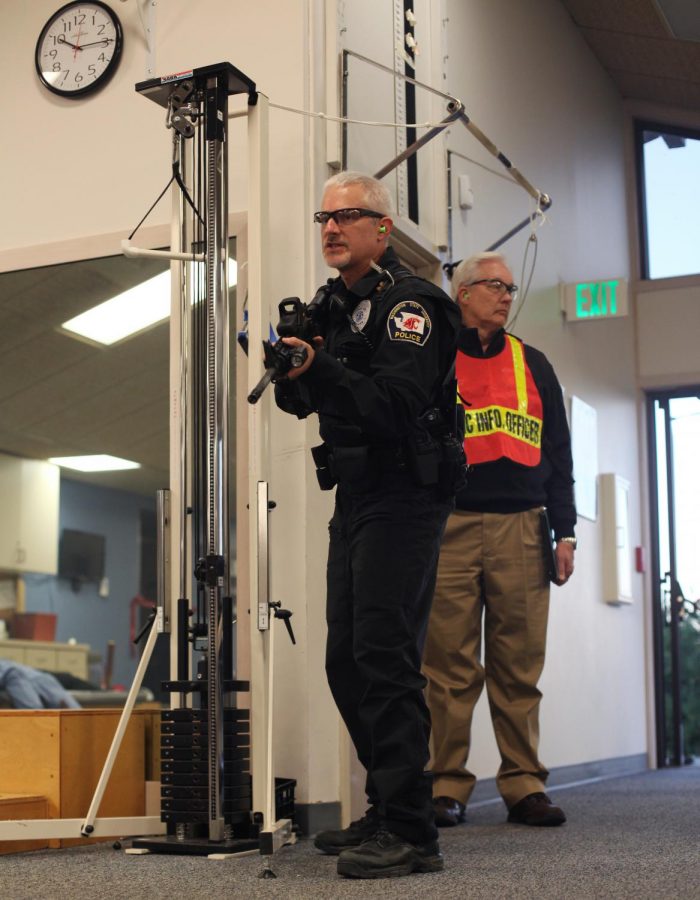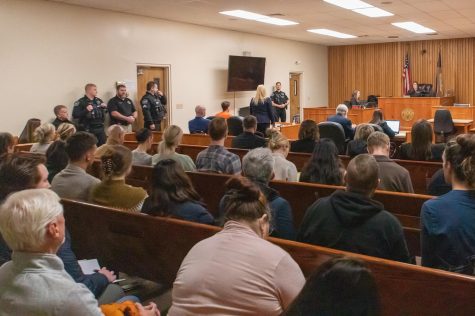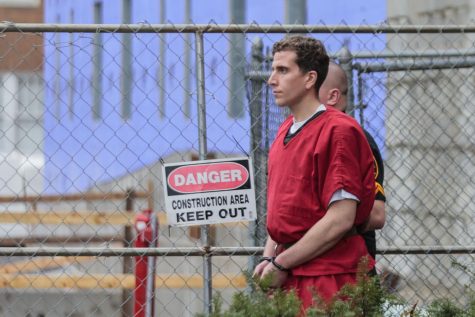Whitman SWAT responds to armed threat
Special team combats dangerous situations, bolster manpower
DANNY DEREGO | DAILY EVERGREEN FILE
Pullman Police officers clear a room during an active shooter drill Oct. 6, 2013.
February 9, 2018
The Whitman County Sheriff’s SWAT team to apprehend a suspect accused of drawing a gun on two people last weekend.
Pullman Police Cmdr. Chris Tennant said the Special Weapons and Tactics team could be used in a variety of situations.
He also said the team is used to making contact with high-risk warrants, as the SWAT team trains regularly to be prepared for dangerous situations.
“They train a week in the summer and once a month during the year,” he said. “They are used to working with each other.”
Officers from three law enforcement agencies in Whitman County — Pullman PD, Whitman County Sheriff’s Office and WSU PD — make up the SWAT team, Whitman County Sheriff Brett Myers said.
Using the team does not always require a warrant, Tennant said. However, officers need to obtain a warrant if they want to enter a private residence without announcing their arrival and identifying themselves.
In this past weekend’s situation, officers knocked on the door while calling to the suspect, asking him to surrender peacefully, which he did, Tennant said. Police had a search warrant for the firearm used in the threats earlier in the night.
Supervisors working on crime scenes decide if the situation calls for the SWAT team. Tennant said they must decide if there is enough manpower to safely deal with a situation without needing to call in more specially-trained officers.
“In a situation such as [last] Friday, you have to keep surveillance on the apartment and then establish a perimeter,” Tennant said. “You also need officers to get a warrant and do background checks, and pretty soon you realize you’re out of people.”
When it comes down to it, he said, supervisors don’t hesitate to call in extra forces if necessary.
“If you don’t have enough people to handle this level of call, where it may turn into a hostage or barricaded situation,” Tennant said, “let’s call in the guys that are always training for this type of situation.”


















